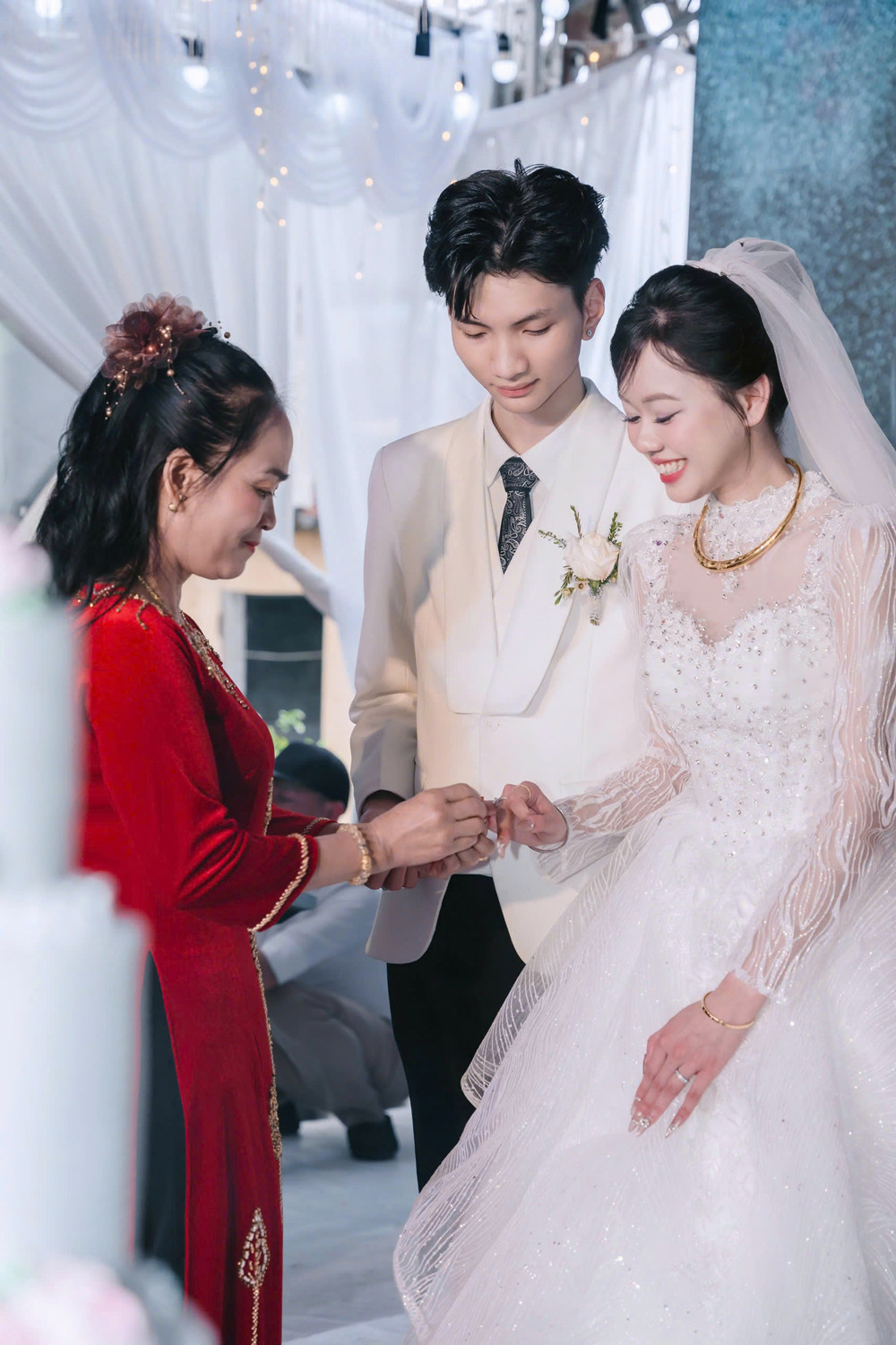
The spacious house in Dan Tien commune, Khoai Chau district, Hung Yen province, is where Thuong, born 1968, lives together with two sons, two daughters-in-law and her grandchildren. Her two daughters are married and live near her home.
Her two sons and eldest daughter are her husband’s children from a previous marriage. Thuong and her husband have only one child, the youngest daughter. However, Thuong has never differentiated between her stepchildren and her own. Though her husband has passed away, she doesn’t feel lonely with all four children by her side.
“We all call her ‘mother’. The concept of stepmother and stepchildren never existed in our family,” said Lan Phuong, born 1985, the eldest daughter.
Phuong said her biological mother passed away when she was seven, and her brothers five and three. A year later, her father married Thuong from a neighboring district who had been married before but had no children.
“Our house was on the roadside. When my biological mother died, Thuong happened to pass by. Seeing us in mourning clothes, she was moved to tears. Later, relatives introduced her to my father. Recognizing us as the children from that day, she agreed to marry him and became our mother,” Phuong recounted.
Phuong believes that a special bond brought Thuong to their family, fostering a natural and deep affection.
When Thuong joined the family, Phuong was eight. She was thrilled to have a mother again, someone to nurture and care for them. Thuong lived up to their expectations, loving and tending to them as her own children.
Her husband worked as a carpenter, while Thuong tilled fields. With many children, she cultivated large fields to feed the family and provide for their education.
Each day, she carried water from the village well to bathe the children. Every piece of clothing they wore was provided by Thuong.
“My parents married early in the year, and by year-end, mother gave birth to my sister, Thu. When she cared for Thu, my youngest brother craved her affection too, so she nurtured both. She loved her daughter and sons equally. Even now, my brother, in his 30s, still clings to her like a child,” Phuong said.
Phuong never saw Thuong treat her stepchildren differently from her own. “Whatever Thu had, we had too. Rewards or punishments were always fair. Mother is kind; she never hit or scolded us harshly,” she said.
As the children grew, Thuong and her husband arranged their marriages. All four children had equally well-organized weddings, with gifts distributed fairly.
When Phuong gave birth, Thuong cared for her. She did the same for her daughters-in-law during their childbirth. “My biological maternal family has long considered her one of their own, maintaining close ties,” Phuong said.
Repaying their stepmother in her old age
Grateful for Thuong’s love and dedication, Phuong and her siblings vowed to care of her in her later years.
At 57, with her children grown and grandchildren maturing, Thuong lives a more relaxed life. She does light chores to stay active, while her children cover all household expenses.
She lives with her two stepsons’ families. Though the house could be divided for privacy, they choose to live together. Phuong, after marrying, built a house nearby, while Thu lives six kilometers away after getting married.
“In our home, there’s never been conflict among mother, children, or siblings. My sisters-in-law are dutiful; if one is busy, the other handles chores. We cook and eat together. My husband and I often join mother for meals.
“The grandchildren, whether young or old, biological or not, adore and cling to her,” Phuong said.
The siblings hold Thuong in the highest respect. They consult her on everything, prioritizing her feelings.
“My brothers tease her sometimes, but if they go too far, she scolds them. If the house is messy, she reminds my sisters-in-law, and they tidy up immediately. The sons and daughters-in-law always ask for her permission to go out and never argue back,” Phuong said.
Each year, Phuong takes Thuong on several trips. On special occasions, she buys flowers, gifts, or even gold for her mother.
During Tet, the siblings join Thuong to make sticky rice cakes, celebrate New Year’s Eve, and visit relatives. After their father died, they committed to supporting and caring for her in his place.
Thanh Minh